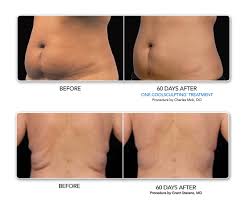Sleep stands as a crucial yet underrated aspect that makes up a good lifestyle. The preservation of mental, emotional, and physical health depends on sufficient sleep, which gets neglected by most people who focus on exercise and nutrition only. Sleep controls the immune response while simultaneously shaping metabolism, thinking ability, and disease resistance to extend beyond basic rest patterns.
The article provides a detailed breakdown showing the impact of sleep on health and human body functions and establishes restful sleep as a superior self-care practice.
Knowing the Basics of Sleep
Natural and repeating, sleep lets the body and mind relax and replenish themselves. It comes in numerous phases:
First stage (light sleep): A moment of transition as you slink in and out of sleep.
The second stage: A deeper stage, including most of your sleep.
Third stage, or deep sleep: The most restful stage of self-healing the body goes through.
REM, or REM, sleep: Driven by fast eye motions and dreams, this stage facilitates learning and memory.
Usually lasting ninety minutes, each cycle passes through four to six times for most people per night. Ignoring these essential phases of sleep can have major long-term consequences.
The Link Between Sleep and Physical Health
1. Immune System Function
A poor immune response develops quickly because of inadequate sleep periods. Sleep directs both immune cells and protein activation, including inflammatory defence proteins known as cytokines.
People who obtain fewer than six hours of sleep per night face higher odds of catching a cold instead of individuals who sleep for seven hours or more. Healthy sleep patterns, which build up immunity assume critical importance given the high prevalence of viral infections during modern times.
2. Cardiovascular Condition
Particularly in heart health, sleep clearly affects general wellness. Your blood pressure lowers during sleep, allowing your heart a much-needed respite. Extended sleep deprivation has been linked to:
- Blood pressure, or hypertension
- irregular heartbeat
- Raised chance of strokes and heart attacks
Regular sleepers of fewer than five hours a night run a 45% higher risk of heart disease.
3. Metabolism and Weight Management
Lack of sleep throws off hormones like ghrelin (hunger hormone) and leptin (fullness hormone), which fuels greater appetite and desires for high-calorie meals. This hormonal imbalance is a major component in:
- Weight increase
- Obesity
- Type-2 diabetes
The reduction of insulin sensitivity occurs during sleep deprivation, which interferes with blood sugar control mechanisms in the body.
The Impact of Sleep on Mental and Emotional Health
1. Cognitive Function and Brain Performance
Getting a full night of sleep improves memory function while at the same time increasing attention span and problem-solving ability. Lack of sleep causes a decrease in attention, while thinking becomes sluggish, and new material becomes harder to memorize.
The process of storing both memory and learnt information requires REM sleep. High-quality sleep delivers equally beneficial effects for professionals and students.
2. Emotional Stability and Mood
Many times, inadequate sleep causes irritation, mood changes, and higher stress. Chronic sleep problems can, over time, aggravate mental health problems, including:
- In depression
- Anxiety
- Bipolar disorder
Sleep and mental health have a bidirectional relationship: inadequate sleep may lead to mental health problems; mental health problems can also make it more difficult to sleep.
3. Risk behaviour and decision-making
A lack of sleep creates adverse effects on the decision-making portion of the brain, termed the prefrontal cortex. The prefrontal cortex impairment caused by sleep deprivation often results in spontaneous actions and flawed assessments that produce dangerous conduct. Adults experience financial impacts and work-related problems from poor sleep, but teenagers tend to develop substance abuse and driving dangers.
Sleep and Chronic Disease Risk
1. Diabetes
Research demonstrates that persons who consistently sleep fewer than six hours develop more likely to be diagnosed with type 2 diabetes. Insufficient sleep causes problems with glucose processing and results in a decline in insulin sensitivity.
2. Cancer
The link between disturbed sleep patterns caused by working shifts or getting startled during nighttime rests with increased cancer development rates, mainly affecting breast and colon cancer diagnosis.
3. Neurodegenerative Diseases
Continuous sleep loss has been linked to an increased susceptibility for developing Alzheimer’s and Parkinson’s diseases. The brain uses deep sleep to eliminate beta-amyloid plaque along with other toxins, which, above, lead to these diseases.
How Much Sleep Do You Really Need?
According to the CDC, here are the recommended sleep durations by age group:
| Age Group | Recommended Sleep |
| Newborns (0–3 mos) | 14–17 hours |
| Infants (4–11 mos) | 12–15 hours |
| Toddlers (1–2 yrs) | 11–14 hours |
| Preschool (3–5 yrs) | 10–13 hours |
| School-age (6–13) | 9–11 hours |
| Teens (14–17 yrs) | 8–10 hours |
| Adults (18–64 yrs) | 7–9 hours |
| Seniors (65+) | 7–8 hours |
Keep in mind that quality matters just as much as quantity.
Warning Signs of Sleep Deprivation
You may be suffering from sleep deprivation if you regularly experience:
- Trouble concentrating
- Frequent yawning
- Mood changes
- Daytime fatigue
- Difficulty remembering things
- Falling asleep unintentionally during the day
If these symptoms are persistent, it’s crucial to consult a healthcare professional.
Improving Your Sleep: Simple But Powerful Tips
1. Maintain a Consistent Sleep Schedule
Set consistent bedtime and wake-up hours for every day, including weekend mornings.
2. Create a Bedtime Ritual
Take part in calming pre-sleep activities, including reading or meditation or bathe in warm water.
3. Limit Screen Time Before Bed
The production of melatonin is reduced when we expose our bodies to blue light from electronic devices such as phones and computers, which leads to insomniac effects.
4. Maintain your bedroom temperature low, combined with substantial darkness.
People achieve better rest when they sleep in a comfortable environment. The optimal range of indoor temperature should fall between 60 and 60–67°F (15 and 19°C).
5. Avoid Stimulants in the Evening
Research shows that coffee and alcohol, as well as cigarettes, have negative effects on your ability to sleep. Delay your consumption of stimulating substances by four to six hours before your sleep time.
6. Exercise Regularly
The timing of heavy exercise before bed should be avoided, while physical movement helps you sleep faster and produces better sleep quality.
Sleep and the Immune System: The Ivermectin Connection
The immune system benefits greatly from sleep, which becomes more essential when investigating treatments for infections and inflammatory conditions.
Studies demonstrate that people who get enough sleep show stronger reactions to prescription medicines, together with vaccines. Analysis of both sleep-related factors and treatment mechanisms should exist as an essential part of designing strategies for infections and inflammatory disease management.
Scientists study ivermectin, which remains a well-known antiparasitic medication, to determine its effects on viral infections and inflammatory diseases. Research reveals that ivermectin’s effectiveness probably relies on immune health status, where sleep patterns directly impact those health levels.
Final Thoughts: Why Sleep Should Be a Priority
Sleep has an extensive influence on overall health. Your sleep practice stands as one of your most effective methods to achieve permanent wellness because it boosts your immunity while benefiting your brain and protecting your heart system. Our modern lifestyle demands that sleep take second place, which results in too many significant health consequences.
Thorough attention toward sleep deserves your commitment as you aim to enhance your health condition. The impact of sleep on health cannot be overstated, as it plays a critical role in both preventing disease and promoting mental and physical well-being.
Your health needs your immediate focus
When it comes to health improvement, sleep prioritization represents only a fraction of the necessary measures. Using proper lifestyle choices along with therapeutic supports helps your immune system become stronger to protect you from various illnesses. For information about Ivermectin treatment and its immune impact, you can visit All Family Pharmacy.
Healthy sleep combined with awareness promotes health control to build your future health.






